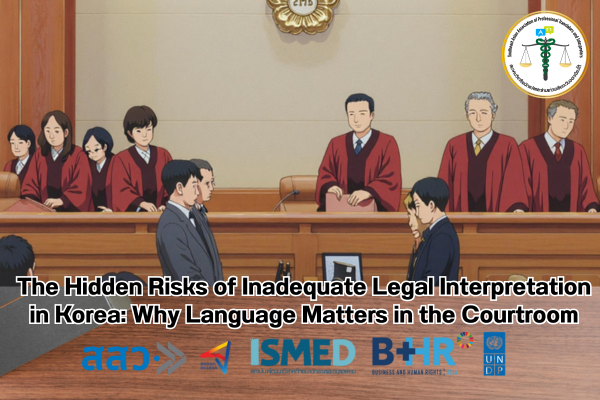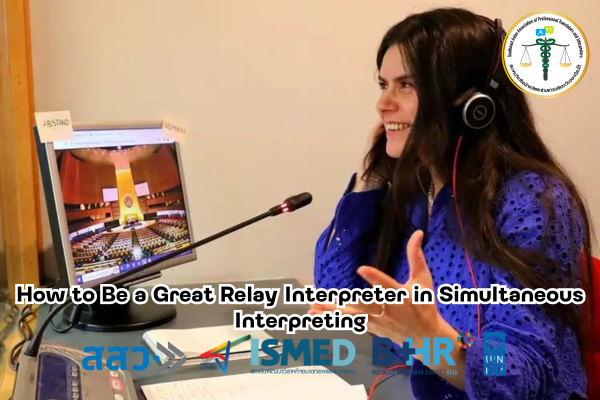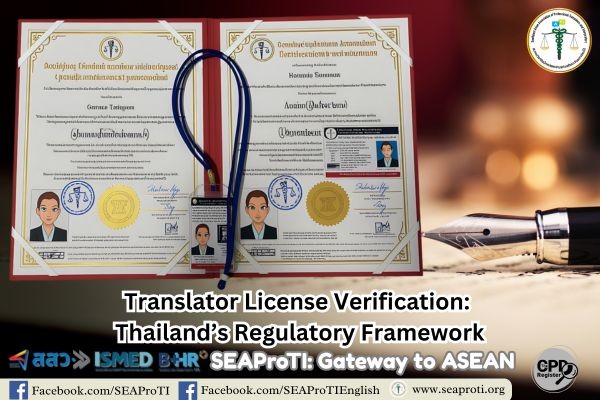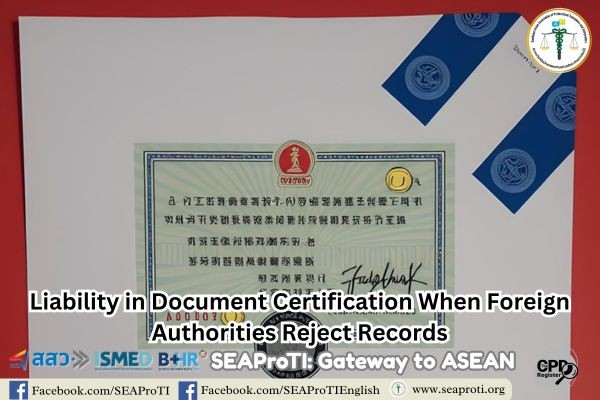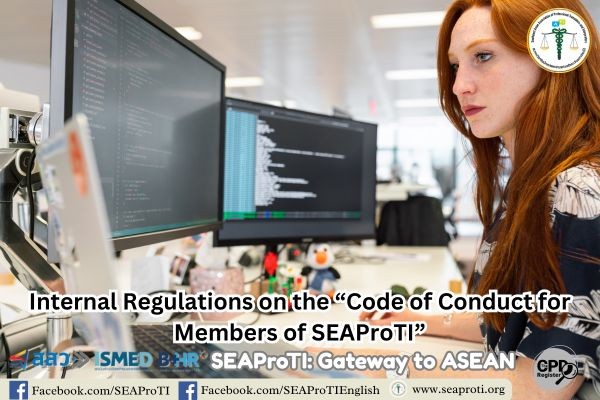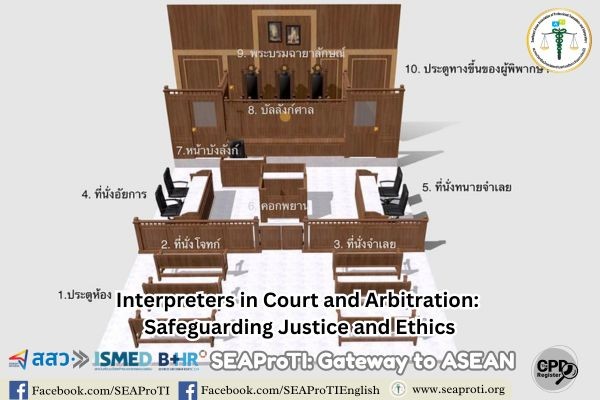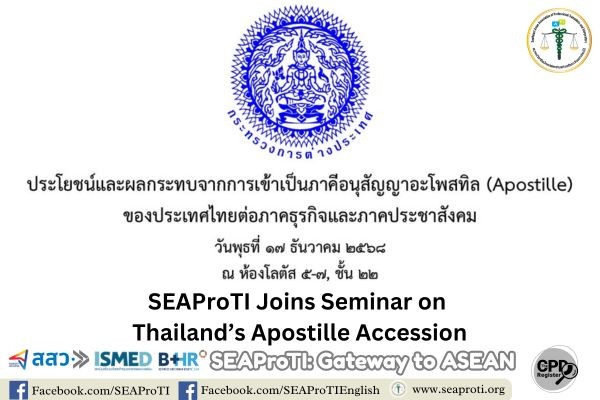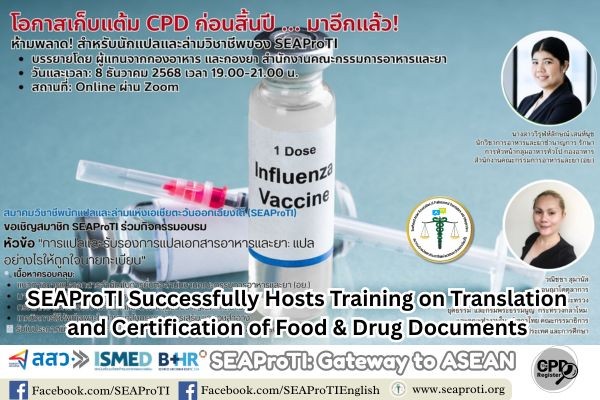The Hidden Risks of Inadequate Legal Interpretation in Korea: Why Language Matters in the Courtroom
10 June 2025, Bangkok – In South Korea’s complex legal environment, accurate interpretation is not a luxury—it’s a necessity. For foreign nationals involved in legal proceedings, the quality of interpretation can significantly influence the outcome of a case. Legal professionals across the country are increasingly raising concerns about the consequences of poor interpretation and the need for a more strategic approach to language in the justice system.
A recurring issue in Korean courtrooms and police stations is the inconsistency in interpretation services. Interpreters often struggle with accuracy, prompting judges or investigators to bypass them entirely and speak directly to legal representatives. This places an added burden on lawyers, many of whom must step in and interpret for extended periods, despite not being trained language professionals.
These challenges reflect broader systemic problems. South Korea lacks a centralized, full-time corps of legal interpreters. Working conditions are demanding, and interpreter qualifications vary widely. Such inconsistency can jeopardize fair trials and investigations for non-Korean speakers.
Linguistic accuracy is more than just a procedural concern; it is critical to justice. Misinterpretations, omissions, or subtle changes in phrasing can lead to misunderstandings with real legal consequences. While some mistranslations may inadvertently benefit a client, those that cause harm require immediate and effective correction.
Experienced legal practitioners understand this risk and take an active role in monitoring interpretation quality. They ensure that their clients’ intentions are conveyed faithfully, challenging errors on the record when necessary. Even individuals with basic language skills often detect inconsistencies, which, if left unaddressed, can severely undermine a defense.
This is especially vital during police investigations. Korean nationals have their statements understood and recorded on the spot. Foreign nationals, by contrast, depend on interpreters, creating a “buffer” that knowledgeable legal counsel can use to clarify or correct problematic statements before they are officially documented. In certain cases, this window of intervention can determine whether an outcome is favorable.
Legal professionals fluent in English and trained in legal terminology are better positioned to manage these risks. Rather than relying exclusively on interpreters, some lawyers communicate directly with clients, judges, and investigators to prevent miscommunication and protect procedural fairness.
Under South Korean law, lawyers are not permitted to speak for their clients during formal questioning. However, they are permitted to correct errors in interpretation. As a best practice, lawyers often advise clients, regardless of language ability, to formally request an interpreter. This procedural step provides legal representatives with a channel to monitor and, when necessary, tactfully intervene in real time.
These interventions must be handled with care. Assertiveness without diplomacy can alienate investigators or disrupt proceedings. But when done respectfully, corrections are often welcomed and can foster productive working relationships with court-appointed interpreters and law enforcement.
In cases involving foreign nationals, legal outcomes often hinge not only on legal arguments but also on how well those arguments—and the client’s intent—are conveyed across languages. Legal professionals who understand this dynamic turn potential communication breakdowns into strategic advantages.
In a judicial system where meaning matters, choosing legal counsel that understands both the law and the nuances of language may be one of the most important decisions a foreigner can make.
SEAProTI’s certified translators, translation certification providers, and certified interpreters:
The Southeast Asian Association of Professional Translators and Interpreters (SEAProTI) has officially announced the criteria and qualifications for individuals to register as “Certified Translators,” “Translation Certification Providers,” and “Certified Interpreters” under the association’s regulations. These guidelines are detailed in Sections 9 and 10 of the Royal Thai Government Gazette, issued by the Secretariat of the Cabinet under the Office of the Prime Minister of the Kingdom of Thailand, dated July 25, 2024, Volume 141, Part 66 Ng, Page 100.
To read the full publication, visit the Royal Thai Government Gazette
ความเสี่ยงที่ซ่อนอยู่จากการแปลกฎหมายที่ไม่มีประสิทธิภาพในเกาหลีใต้: ทำไมภาษาจึงมีความสำคัญในกระบวนการยุติธรรม
10 มิถุนายน 2568, กรุงเทพฯ – ในระบบกฎหมายที่ซับซ้อนของประเทศเกาหลีใต้ การแปลภาษาอย่างถูกต้องไม่ใช่เรื่องฟุ่มเฟือย คือแพงแค่ไหนก็ต้องจ่าย และเป็นสิ่งจำเป็น โดยเฉพาะสำหรับชาวต่างชาติที่เกี่ยวข้องในคดีความ ความถูกต้องของการแปลสามารถมีอิทธิพลอย่างมากต่อผลลัพธ์ของคดี และในขณะนี้ นักกฎหมายหลายคนในเกาหลีใต้เริ่มแสดงความกังวลต่อผลกระทบร้ายแรงของการแปลที่ผิดพลาด พร้อมเสนอแนวทางที่มุ่งเน้นเชิงกลยุทธ์ต่อการใช้ภาษาในกระบวนการยุติธรรม
ปัญหาที่เกิดขึ้นบ่อยในห้องพิจารณาคดีและสถานีตำรวจของเกาหลีคือคุณภาพของล่ามที่ไม่สม่ำเสมอ หลายครั้งล่ามไม่สามารถแปลได้อย่างถูกต้อง ทำให้ผู้พิพากษาหรือพนักงานสอบสวนตัดสินใจข้ามการใช้ล่าม และหันไปสื่อสารโดยตรงกับทนายความแทน ส่งผลให้ทนายความต้องทำหน้าที่แปลเองเป็นระยะเวลานาน ทั้งที่ไม่ได้มีการฝึกฝนด้านภาษามาโดยเฉพาะ
ปัญหาเหล่านี้สะท้อนถึงข้อบกพร่องเชิงระบบของโครงสร้างการให้บริการล่ามของเกาหลีใต้ ประเทศยังขาดระบบล่ามกฎหมายประจำที่มีความเชี่ยวชาญสูง ขณะที่เงื่อนไขการทำงานก็ท้าทาย และมาตรฐานคุณสมบัติของล่ามแตกต่างกันอย่างมาก ซึ่งอาจส่งผลกระทบต่อความยุติธรรมในคดีที่เกี่ยวข้องกับชาวต่างชาติ
ความแม่นยำทางภาษาจึงไม่ใช่เพียงเรื่องเทคนิค แต่เป็นหัวใจของความยุติธรรม ความผิดพลาดในการแปล เช่น การตัดคำ การแปลผิด หรือการเปลี่ยนความหมายเล็กน้อย อาจนำไปสู่ความเข้าใจผิดที่มีผลต่อเนื้อหาทางกฎหมาย หากการแปลผิดเกิดขึ้นโดยส่งผลเสียต่อผู้ต้องหา การแก้ไขอย่างรวดเร็วคือสิ่งจำเป็น
ทนายความที่มีประสบการณ์มักจะติดตามการแปลอย่างใกล้ชิด และพร้อมจะคัดค้านหรือแก้ไขหากพบข้อผิดพลาด เพื่อให้คำพูดของลูกความถูกถ่ายทอดอย่างถูกต้อง แม้แต่บุคคลที่เข้าใจภาษาเกาหลีและภาษาอังกฤษในระดับพื้นฐาน ก็ยังสามารถจับผิดความคลาดเคลื่อนได้ ซึ่งหากไม่แก้ไข อาจทำให้แนวทางการต่อสู้คดีอ่อนแอลง
ความสำคัญของประเด็นนี้จะชัดเจนยิ่งขึ้นในกระบวนการสอบสวนของตำรวจ คนเกาหลีสามารถให้ปากคำและถูกบันทึกได้ทันที ในขณะที่ชาวต่างชาติต้องพึ่งพาการแปลผ่านล่าม ซึ่งเปิดโอกาสให้ทนายความที่มีความชำนาญเข้ามาตรวจสอบ แก้ไข หรือป้องกันข้อความที่อาจเป็นภัย ก่อนที่จะถูกบันทึกเป็นทางการ ซึ่งบางครั้งอาจเปลี่ยนผลลัพธ์ของคดีโดยสิ้นเชิง
ทนายความที่มีทักษะภาษาอังกฤษอย่างแท้จริง และผ่านการฝึกด้านคำศัพท์ทางกฎหมายและการสื่อสารข้ามวัฒนธรรม จะสามารถลดความเสี่ยงจากการแปลผิด และสื่อสารกับลูกความ ผู้พิพากษา หรือเจ้าหน้าที่สอบสวนได้โดยตรง
แม้ว่ากฎหมายเกาหลีใต้จะห้ามไม่ให้ทนายความพูดแทนหรือตัดคำพูดของลูกความระหว่างการสอบสวนอย่างเป็นทางการ แต่ก็อนุญาตให้ทนายความ “แก้ไขข้อผิดพลาดจากการแปล” ได้อย่างชอบด้วยกฎหมาย ด้วยเหตุนี้ ทนายความจึงมักแนะนำให้ลูกความทุกคน—evenผู้ที่พูดภาษาเกาหลีได้—ร้องขอให้มีล่าม เพื่อสร้างพื้นที่ทางกระบวนการที่เปิดโอกาสให้ทนายสามารถตรวจสอบและแทรกแซงเมื่อจำเป็น
อย่างไรก็ตาม การแทรกแซงต้องดำเนินด้วยความรอบคอบ หากกระทำอย่างแข็งกร้าวหรือขัดแย้งเกินไป อาจทำให้ความสัมพันธ์กับเจ้าหน้าที่หรือผู้แปลที่แต่งตั้งโดยรัฐแย่ลง ในทางกลับกัน การแก้ไขข้อผิดพลาดอย่างสุภาพและเป็นมืออาชีพ มักได้รับความร่วมมือ และสร้างความเชื่อมั่นในบทบาทของทนายความ
ในคดีที่เกี่ยวข้องกับชาวต่างชาติ ผลลัพธ์มักไม่ได้ขึ้นอยู่กับข้อกฎหมายเพียงอย่างเดียว แต่ขึ้นอยู่กับวิธีที่ข้อความต่าง ๆ ถูกถ่ายทอดผ่านภาษา ทนายความที่เข้าใจทั้งกฎหมายและพลวัตของภาษา จะสามารถเปลี่ยนความเสี่ยงของการสื่อสารผิดพลาด ให้กลายเป็นโอกาสเชิงกลยุทธ์
ในระบบยุติธรรมที่ “ความหมาย” มีผลต่อชีวิตและเสรีภาพ การเลือกทนายความที่เข้าใจทั้งกฎหมายและภาษาอย่างลึกซึ้ง อาจเป็นการตัดสินใจที่สำคัญที่สุดสำหรับชาวต่างชาติที่ต้องต่อสู้ในกระบวนการยุติธรรมของเกาหลีใต้
เกี่ยวกับนักแปลรับรอง ผู้รับรองการแปล และล่ามรับรองของสมาคมวิชาชีพนักแปลและล่ามแห่งเอเชียตะวันออกเฉียงใต้
สมาคมวิชาชีพนักแปลและล่ามแห่งเอเชียตะวันออกเฉียงใต้ (SEAProTI) ได้ประกาศหลักเกณฑ์และคุณสมบัติผู้ที่ขึ้นทะเบียนเป็น “นักแปลรับรอง (Certified Translators) และผู้รับรองการแปล (Translation Certification Providers) และล่ามรับรอง (Certified Interpreters)” ของสมาคม หมวดที่ 9 และหมวดที่ 10 ในราชกิจจานุเบกษา ของสำนักเลขาธิการคณะรัฐมนตรี ในสำนักนายกรัฐมนตรี แห่งราชอาณาจักรไทย ลงวันที่ 25 ก.ค. 2567 เล่มที่ 141 ตอนที่ 66 ง หน้า 100 อ่านฉบับเต็มได้ที่: นักแปลรับรอง ผู้รับรองการแปล และล่ามรับรอง


